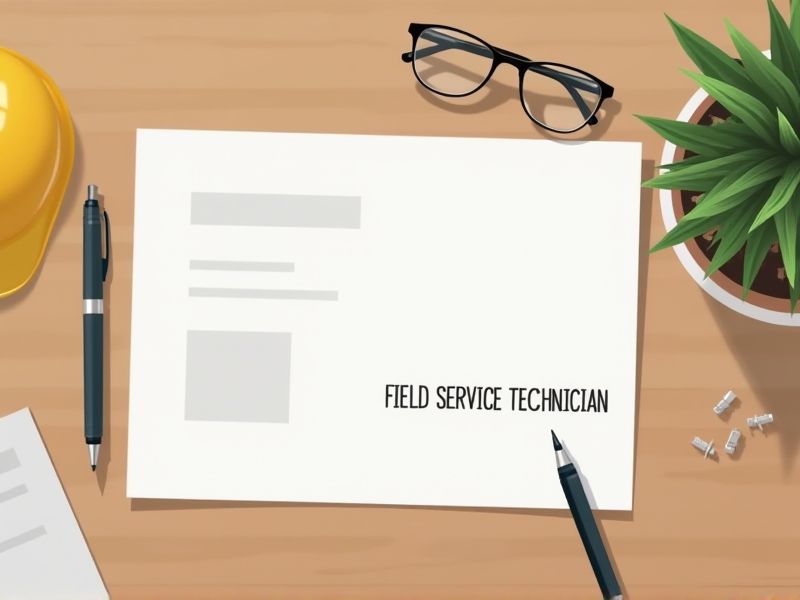
Field Service Technicians face complex equipment and technology that demand precise problem-solving skills and technical expertise. Certifications validate a technician's adeptness and ensure they meet industry standards, thereby enhancing their employability and performance in field operations. Many employers rely on certifications to assess a technician's readiness to handle specific tools and equipment safely and effectively. Some essential certifications you might require as a Field Service Technician are listed below.
CompTIA A+
The CompTIA A+ certification equips field service technicians with foundational IT support knowledge, ensuring they can efficiently troubleshoot and resolve hardware and software issues. Employers often require this certification because it validates a technician's ability to work with a wide range of devices and operating systems. Having the CompTIA A+ indicates a standardized competency, which can lead to more trusted customer interactions and satisfaction. The certification also serves as a stepping stone for career advancement, providing a pathway to specialized roles and higher responsibilities in IT services.
CompTIA Network+
CompTIA Network+ provides foundational networking knowledge essential for diagnosing and resolving technical issues encountered by Field Service Technicians. With expertise in network configurations and maintenance, technicians improve service efficiency and customer satisfaction in the field. Employers often prefer or require this certification, indicating a standardized skill level and commitment to the profession. The certification enhances a technician's career prospects by validating skills recognized across the IT industry.
Cisco Certified Network Associate (CCNA)
CCNA certification provides foundational knowledge in networking, which is essential for a Field Service Technician to troubleshoot and maintain network infrastructure effectively. Understanding routing and switching through the CCNA helps technicians resolve connectivity issues and enhance network performance. As technology evolves, the CCNA keeps technicians updated on the latest networking protocols, ensuring compatibility with modern systems. Employers often require CCNA certification to ensure that technicians have verified skills and knowledge, increasing job opportunities and career advancement prospects.
CompTIA Server+
CompTIA Server+ certification validates essential skills in server hardware and management, which enhances a Field Service Technician's ability to respond to complex technical issues effectively. Knowledge in server maintenance and troubleshooting decreases downtime, leading to improved efficiency and customer satisfaction. Understanding server environments ensures technicians can seamlessly integrate and support varying IT infrastructures. The certification enhances problem-solving capability, which is crucial for delivering reliable service in diverse, high-stakes scenarios.
Certified Electronics Technician (CET)
Hiring a Certified Electronics Technician (CET) ensures that the individual has a standardized level of expertise in electronics, which is critical for diagnosing and repairing complex equipment. Field Service Technicians often encounter a variety of electronic systems; having CET certification demonstrates the ability to work across these varied systems efficiently. The CET credential typically reflects practical knowledge, minimizing downtime for businesses by reducing errors and repair times. Customers tend to trust certified professionals more, which can enhance a company's reputation and client satisfaction rates.
OSHA 10-Hour Safety Certification
Field service technicians face diverse hazards that can lead to accidents, and the OSHA 10-Hour Safety Certification provides essential knowledge to mitigate these risks. The certification helps technicians identify and understand workplace hazards, which in turn reduces the likelihood of injuries. Compliance with OSHA standards, often a requirement for many employers, ensures that companies meet safety regulations, fostering a safer work environment. By equipping technicians with foundational safety practices, companies can minimize downtime and associated costs due to workplace incidents.
BICSI Technician Certification
Field Service Technicians possessing a BICSI Technician Certification demonstrate their proficiency in installing and maintaining complex communication systems, which is critical in ensuring reliable infrastructure for businesses. This certification signifies adherence to industry standards, enhancing a technician's credibility and increasing trust among clients. Acquiring this credential can lead to greater job opportunities and potential career advancements within the telecommunications and data industry. Employers often prioritize certified technicians because they tend to exhibit higher levels of expertise and professional commitment, reducing the risk of errors or system failures.
NICET Certification
NICET Certification for Field Service Technicians validates a technician's skills and knowledge, ensuring competence in industry standards. Employers often prioritize hiring certified technicians to reduce risk and ensure project compliance with regulatory requirements. The certification process provides structured learning and practical experience, improving technician performance in the field. Certified technicians tend to command higher salaries, reflecting their increased value to companies.
Microsoft Certified: Modern Desktop Administrator Associate
The Microsoft Certified: Modern Desktop Administrator Associate certification equips Field Service Technicians with skills to manage, deploy, and secure devices and applications in an enterprise environment. Possessing this certification enhances a technician's ability to efficiently troubleshoot and resolve desktop issues. Knowledge gained through this certification ensures technicians can implement and manage device compliance and security, which is crucial in field service roles. Certification indicates proficiency in Windows 10 deployment and management, aligning with industry standards for IT support.
Lean Six Sigma Yellow Belt Certification
Acquiring a Lean Six Sigma Yellow Belt Certification equips a field service technician with process improvement skills, resulting in increased operational efficiency. Enhanced problem-solving abilities allow the technician to identify and rectify issues faster, reducing downtime. Familiarity with data-driven decision-making processes leads to more consistent service quality and customer satisfaction. Understanding Lean principles promotes waste reduction, optimizing resource utilization and lowering operational costs.
Summary
When you obtain certifications as a Field Service Technician, your credibility in the job market increases. This credibility often leads to higher earning potential and better job security. The certifications also equip you with advanced skills and knowledge, enabling you to handle complex tasks more efficiently. Enhanced expertise often results in improved customer satisfaction, fostering long-term client relationships.
